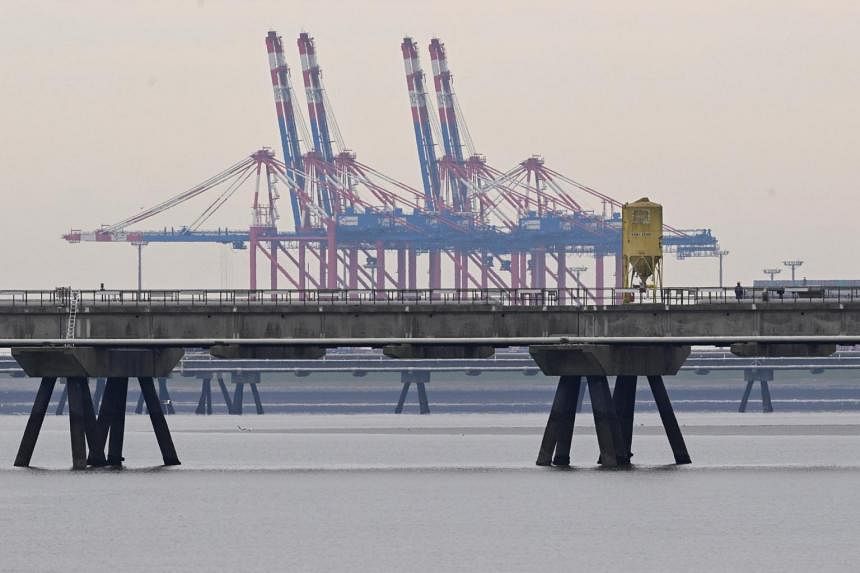BERLIN (AFP) - Germany's economy minister has urged environmental activists to avoid filing lawsuits against plans for new LNG terminals, warning that their zealousness to save porpoises could inadvertently strengthen the hand of Vladimir Putin.
Germany is racing to build liquefied natural gas terminals to receive gas from farther afield in its bid to quickly turn its back on piped-in Russian energy following Moscow's invasion of Ukraine.
But environmental group DUH has filed an opposition against the building of terminals at Wilhelmshaven.
The group says the construction will "irreversibly destroy sensitive ecosystems as well as endanger the living space of threatened porpoises".
"I am the biggest porpoise fan in the government," said Economy Minister Robert Habeck of the Green party in an interview with RTL broadcaster late on Wednesday (May 4).
But "your lawsuit would put us in greater dependence" on Russian energy, he warned.
The process of liquefaction makes LNG easier to transport, allowing it to be imported by sea from producer countries that cannot be connected by pipelines, such as the United States or Qatar.
The terminals being constructed are essentially infrastructure for special ships that unload tanks of LNG brought in by sea.
They also include equipment for re-gasification, storage and compression.
Germany currently has no LNG terminals as it had counted on expanding its pipeline links with Russia for more energy.
However, Russia's aggression in Ukraine has upended those calculations, and Berlin is now expediting the process to build four LNG terminals.
With the EU now debating a Russian oil embargo, Mr Habeck has in the last days been psychologically preparing Germans for possible energy disruptions.
On Wednesday, he warned that there could be petrol "shortages" hitting specific regions, including Berlin where 90 per cent of oil consumed stem from a refinery that processes Russian oil.

